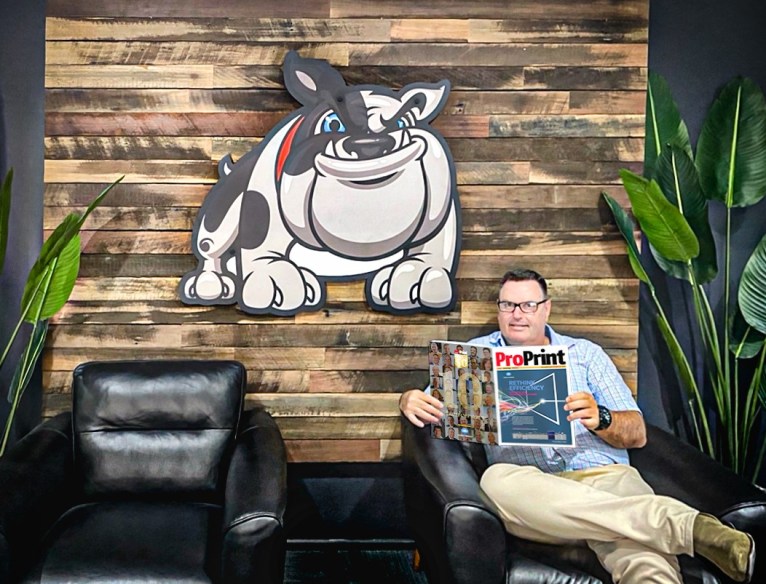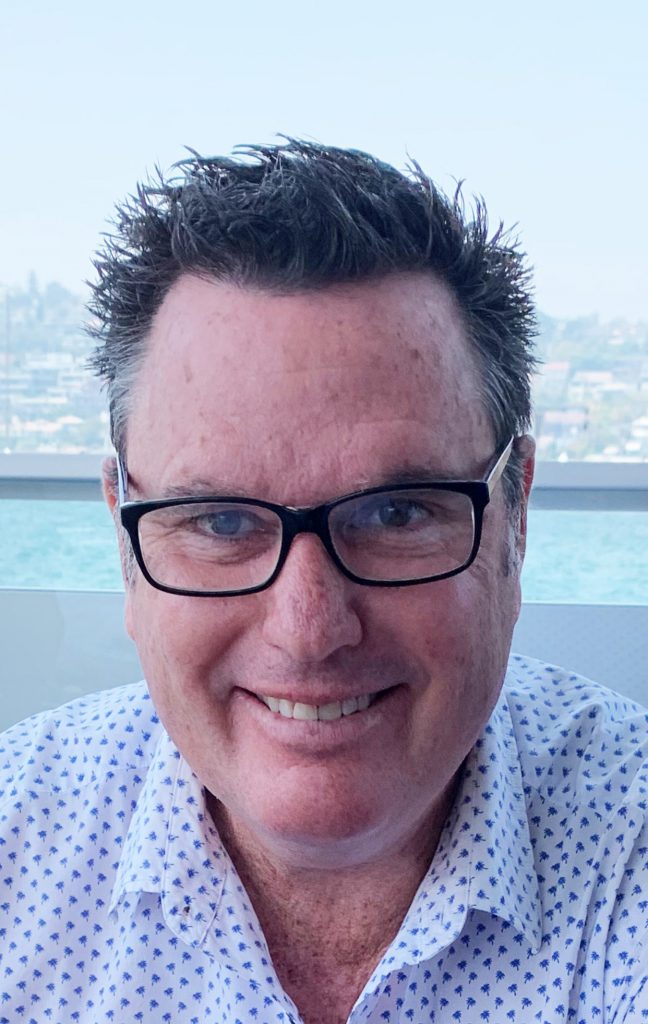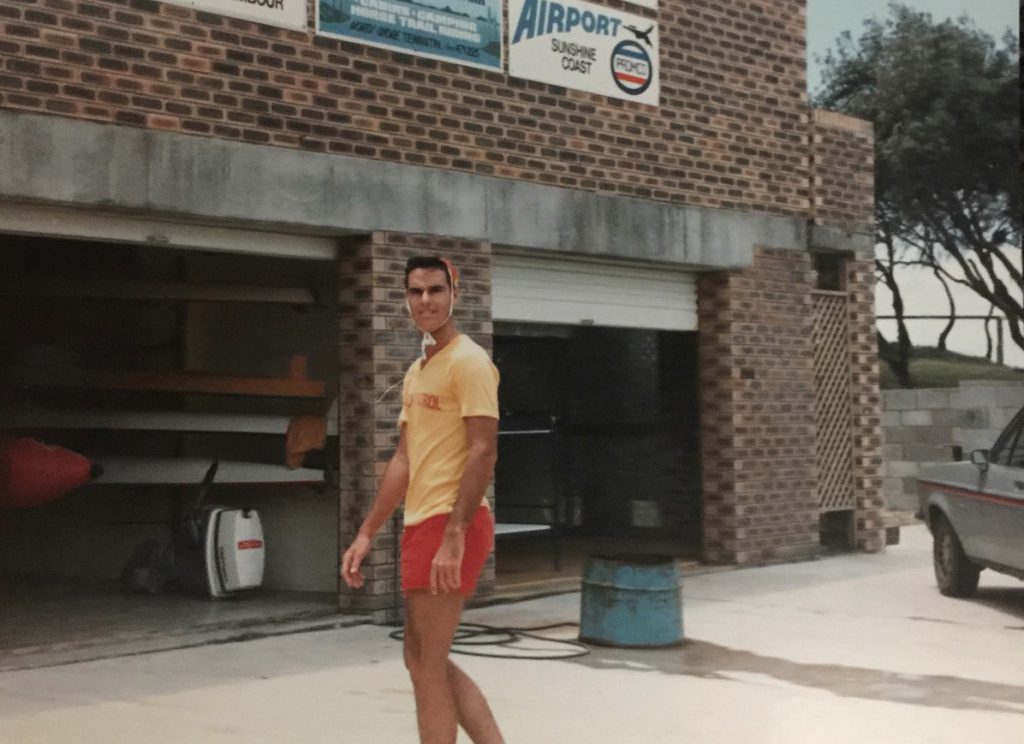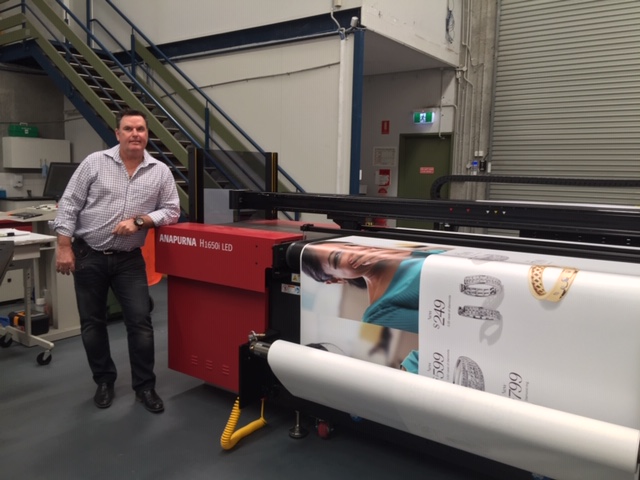
This Q&A with Simon Carmody, managing director, of Spot Productions was first published in the April 2021 edition of ProPrint magazine. Check out the the full digital version of ProPrint here.
Q: The last 12 months have been tough. How are things going for you?
A: We had the same problems last year during COVID as every business in Australia did. The tide certainly went out a fair way for us from April through to June, but we saw good signs of a return from the middle of July and August. We have certainly been very busy ever since. The bounce back was very strong for us.
Q: What does the printing industry need to be stronger?
A: In my opinion there is one key area that needs to be improved for the printing industry to thrive and that is a stronger supply chain.
Supply chain issues were highlighted more than ever during COVID-19. We had a great deal of trouble getting supplies, mainly paper and other stock, from overseas.

This has been without a doubt the biggest issue for us in the last six months. To help get around this printers of a certain size will have to look further than the main suppliers to ensure they have the supplies they need.
Look beyond main suppliers: Carmody
Here at Spot Productions, we will be stockpiling our own paper, especially the commodity grade papers that we use more of.
This means we will need to have more foresight about what we pre-order and have delivered onsite direct from the overseas paper mills. We will be starting the conversation about this by dealing directly with mills around the world.
Where this is most important is with the commodity grade papers. We have just moved into a bigger site in the existing industrial complex where we are based. It is a 4,000 square metre site and the power is now up and we are moving in.
Having this extra space will make it a lot easier for us to import direct from the overseas mill and store the paper onsite. So, yes to avoid supply chain issues, I will be buying some paper direct. Our turnover warrants us to do this.
Last year there was no commodity grades including 90 gsm coated, publication papers and some offset grades available in the country.
“I did lose some jobs because I had no paper but then I got smart and started buying it direct, so I only missed out on one campaign.
Spot productions managing director, simon carmody
So when it comes to the grades we use a lot of, we will be chatting to mills overseas for sure. Buying direct is no different to what the carton and packaging companies have been doing for many years. A lot of carton and packaging guys pre-order their stock so they can actually be assured of getting the job.
There are two and a half major players in paper supply in Australia and 15 years ago there were 10. Our raw material is paper so if you are not sourcing that at a better price and managing your storage and your flow you are certainly left behind on some jobs.
A necessary gamble
Doing business this way is a bit of a gamble. You’ve got to buy a fair bit of it and have a container dropped on the ground so there is a fair bit of money tied up in paper you haven’t yet printed on. But there are definitely those times when if you have the paper, you get the job and your cash flow catches up. It is just a part of doing business now.
Q: What sort of support would help print businesses thrive?
A: I think the printing industry needs to be supported by one strong peak industry body which can speak to government about our industry.
This body needs to represent all levels of print nationally and not just the southern states. It also needs to have strong IR and HR services and run workshops and education programmes for the whole industry, not just the big end of town or certain members.
Q: Does Spot Productions miss out on much work to overseas providers?
A: No. The work we do is time sensitive and must be lodged with newspapers or in the mailhouse at certain times. I do understand book publishers or quarterly magazines would struggle with overseas competition but everything we do is urgent.
Q: What is the hardest thing about being a printer?
A: The hardest thing about being a printer is attracting qualified tradespeople, multi-skilled employees and staff that are actually willing to work. There are also huge issues around training. Unfortunately, there is not a huge take-up of apprenticeships and traineeships in our industry. Queensland has seen the biggest growth in apprentices in many years, but we are not seeing them in print.
Q: What do you love about print?
A: Print is in my blood. I’m a printer, my dad was a printer and so was my grandfather. I like the excitement of print and the feel and smell of print. Our site is quite dynamic and everything is urgent, but I enjoy the adrenalin that comes with creating new products in tight timeframes. Every job is different, and I find that exciting as I thrive on deadlines and adrenalin. I like the rush.
Q: As a Queensland-based printer, what are the biggest challenges you face?
A: We are based in Queensland, but we class ourselves as a national printer. Our challenges are no different to a printer in Victoria or Western Australia. The biggest challenge we all face is delivery. It is a bit like the lottery dealing with freight companies and managing deliveries. All printers who are exposed to large freight companies experience these issues. That is the biggest challenge we have but I know Victorian and Western Australian printers have the same problem delivering nationally. The job may get delivered, or it may not.
Q: What are the main opportunities for print going forward?
A: I think the biggest future opportunity is that there will be less players. There is also a lot more diversification into cutsheet digital, wide format and offset printing and there are good opportunities out there for a full-service printer. All printers should be looking to diversify rather than offer one specialty.
Q: What are the biggest threats?
A: Every business is under pressure because of the Australian dollar and how this impacts the cost of imported products. It is the same in every industry and business, if you don’t have a good business plan in place you are going to end up killing yourself.
People always bang on about the pressure on price, but if you are a full-service business, price is not always the main reason why you get the job.
Q: Where do you see the print industry in 20 years’ time?
A: I think the print industry will be thriving but the technology and the way we do things will have changed. There will be a lot more inkjet digital work. But you’ve got to have your eyes open to understand what technology suits your business.
Print is certainly not dead, that is never going to happen. All you have to do is look around every shopping centre and supermarket to see that. The biggest opportunities will be ensuring you print on both sides of the paper at once and speed to market. Variable imaging with inkjet and digital also presents a huge opportunity.
Q: What do you like to do to unwind?
A: I used to be a Surf Life Saver at Marcoola Beach on the Sunshine Coast and I still love going to the beach and playing golf.

Q: Favourite holiday location?
A: That has to be the Sunshine Coast in Queensland or just any beach really, especially one that has a golf course nearby.
Q: First band you saw live?
A: That took me back! I was a young bloke when I saw Midnight Oil under the big top on the Gold Coast in about 1982 on The Spit.
Comment below to have your say on this story.
If you have a news story or tip-off, get in touch at editorial@sprinter.com.au.
Sign up to the Sprinter newsletter



